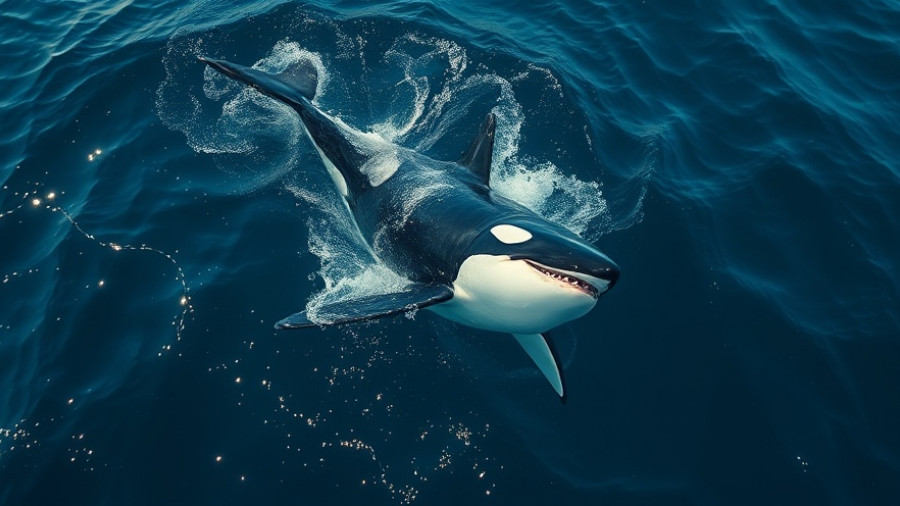
The Shocking Predator-Prey Dynamic in the Gulf of California
In a startling revelation from the waters of the Gulf of California, orcas have been observed using a clever strategy to hunt juvenile great white sharks. Researchers led by marine biologist Jesús Erick Higuera Rivas documented instances where orcas, specifically a pod referred to as Moctezuma's pod, flipped young sharks upside down, inducing a state of tonic immobility. This trance-like state not only temporarily paralyzes the sharks but also facilitates the orcas in accessing the sharks' nutrient-rich livers, which they consume and share among themselves. This behavior, never recorded before in this particular region, showcases the advanced intelligence and sophisticated hunting skills of orcas.
A Unique and Advanced Hunting Technique
The approach by the orcas involves a strategic methodology that offers them a significant advantage. By ramming the juvenile sharks to flip them upside down, they can effectively incapacitate their prey. According to the findings published in the journal Frontiers in Marine Science, this unique hunting behavior highlights not only the orca's physical prowess but also their ability to adapt and evolve hunting strategies based on available prey. The orcas from Moctezuma's pod have been noted to switch tactics, showing remarkable cognitive skills in adjusting to circumstances.
The Ecological Significance of Orcas as Apex Predators
This research prompts important questions regarding the ecological balance between orcas and great white sharks in the Gulf of California. The apparent rise in juvenile great white sharks in the area, likely due to environmental changes, such as increased ocean temperatures, may provide a food source that has attracted these orcas. As apex predators, orcas play a crucial role in maintaining the health of marine ecosystems. Their hunting patterns influence the population dynamics of sharks, benefiting other species within the marine food web.
Future Implications: Understanding Marine Predator Dynamics
The clear shift in behavior of orcas preying on juvenile great whites may indicate broader changes in marine ecosystems, particularly with regards to shifting nursery grounds for sharks. Researchers believe as ocean conditions change further, orcas may adapt and develop other specialized hunting methods. The continued observation and study of these interactions will help scientists understand the factors influencing predator-prey relationships in our oceans.
For the Beach-Goers and Boaters: A Cautionary Tale
For beach enthusiasts and boaters alike, the presence of orcas targeting juvenile great white sharks sends a strong message about the evolving nature of marine wildlife interactions. While encounters with these magnificent mammals are awe-inspiring, it serves as a reminder of the dynamic and sometimes dangerous nature of oceanic environments. This emerging behavior of orcas showcases the complicated dance of life in the sea and should be regarded with a combination of respect and caution.
This new understanding of orca behavior encourages us to appreciate the delicate balance of marine ecosystems while being aware of the powerful, intelligent creatures inhabiting these waters. Keep your eyes peeled on your next beach trip, as the ocean is home to more surprises than we can imagine!
 Add Row
Add Row  Add
Add 




Write A Comment